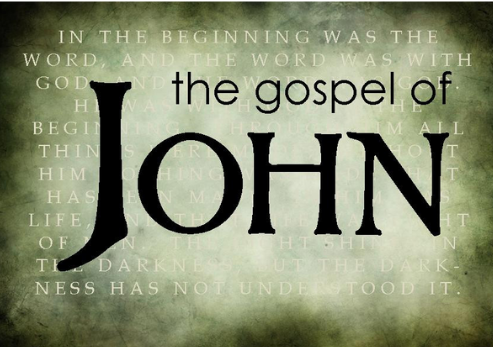| 43 Now after the two days He departed from there and went to Galilee. 44 For Jesus Himself testified that a prophet has no honor in his own country. 45 So when He came to Galilee, the Galileans received Him, having seen all the things He did in Jerusalem at the feast; for they also had gone to the feast. 46 So Jesus came again to Cana of Galilee where He had made the water wine. And there was a certain nobleman whose son was sick at Capernaum. 47 When he heard that Jesus had come out of Judea into Galilee, he went to Him and implored Him to come down and heal his son, for he was at the point of death. 48 Then Jesus said to him, "Unless you people see signs and wonders, you will by no means believe." 49 The nobleman said to Him, "Sir, come down before my child dies!" 50 Jesus said to him, "Go your way; your son lives." So the man believed the word that Jesus spoke to him, and he went his way. 51 And as he was now going down, his servants met him and told him, saying, "Your son lives!" 52 Then he inquired of them the hour when he got better. And they said to him, "Yesterday at the seventh hour the fever left him." 53 So the father knew that it was at the same hour in which Jesus said to him, "Your son lives." And he himself believed, and his whole household. 54 This again is the second sign Jesus did when He had come out of Judea into Galilee. Question to Consider:
| Jesus went back home. He said something to His disciples which is tragic and true. He said, "A prophet has no honor in his own country." This runs along the same philosophical idea that "familiarity breeds contempt." This tells us a lot about the sin nature that is a part of the human makeup. We tend to be ungrateful and unappreciative of the "things" that bless our lives. We take a lot for granted! As Jesus headed for His hometown, the news concerning the things Jesus had done in Jerusalem preceded Him. Translated: "It does not take a lot of miracles to gain the attention of others." As Jesus came into Cana, where He had turned the water into wine at a wedding. A nobleman approached Jesus. The nobleman recognized that Jesus had the power to "be" the solution to a problem that he had. The nobleman "implored" Jesus to come and heal his son, who was sick unto death. This was a desperate man. It is common for people, who are in desperate situations, to reach out to God. They may never have shown an interest in spiritual things until they have a problem that has no obvious natural solution. As a bona fide miracle-worker, Jesus was about to become a magnet for people who were desperate for a miracle. Jesus made a second observation concerning people's conduct: v.48 "Unless you people see signs and wonders, you will by no means believe." Let's be truthful, it is difficult to believe when there is no proof of "something." Jesus' miracles gave the people "something" to work with. The Gospel of John reports the healing of the nobleman's son as the second sign that Jesus did in Galilee. Jesus did not go with the nobleman to initiate a miracle, He simply told the nobleman that his son would live. The nobleman believed what Jesus said. It was later confirmed that the son was healed at the very same time that Jesus declared the son to be alive. The net result: The nobleman and his whole household believed in Jesus. |
|
0 Comments
|
RJ DugoneLead Teaching Elder: Archives
July 2020
Categories
All
|


 RSS Feed
RSS Feed
